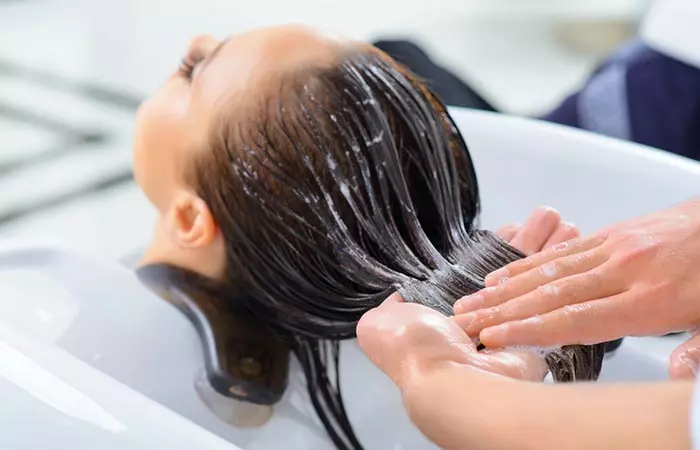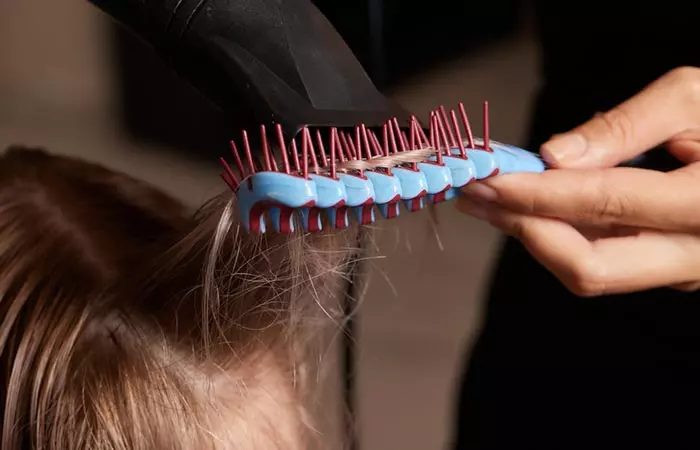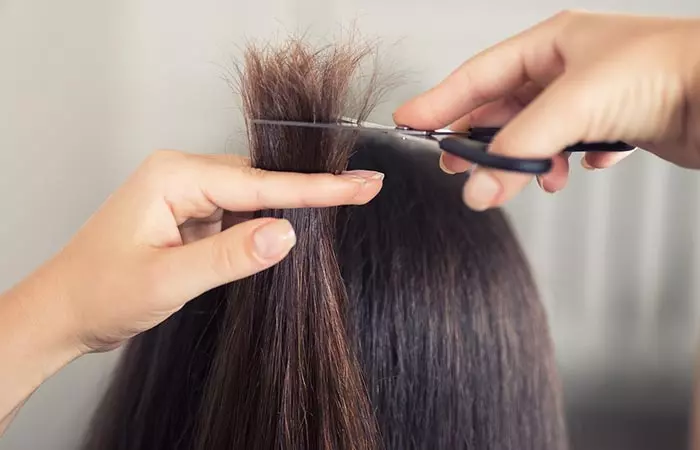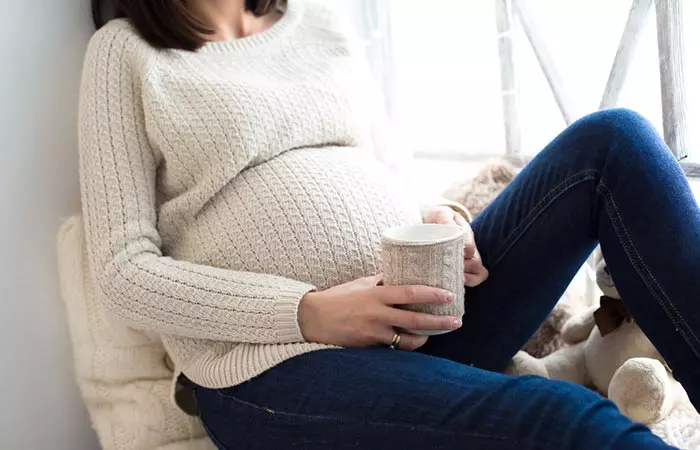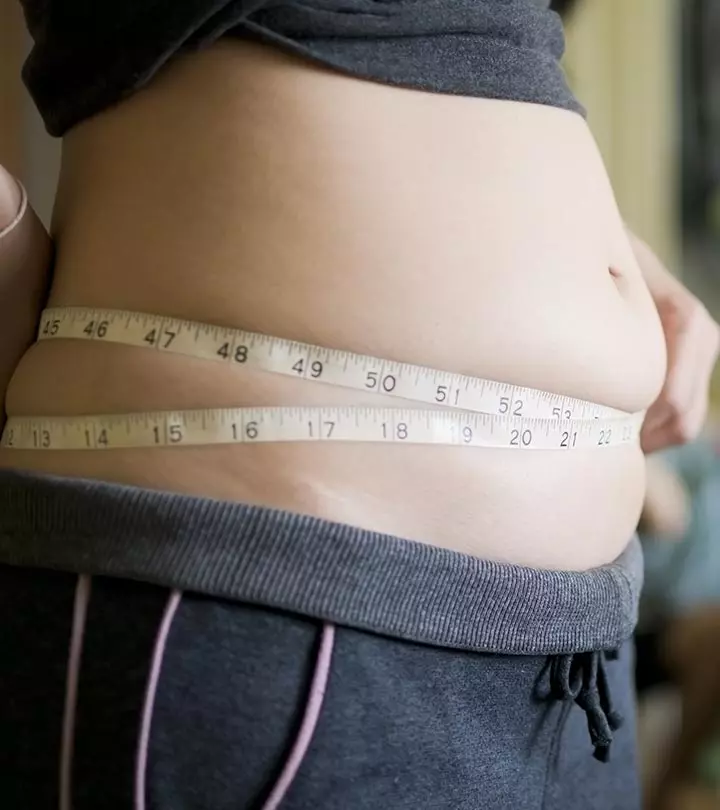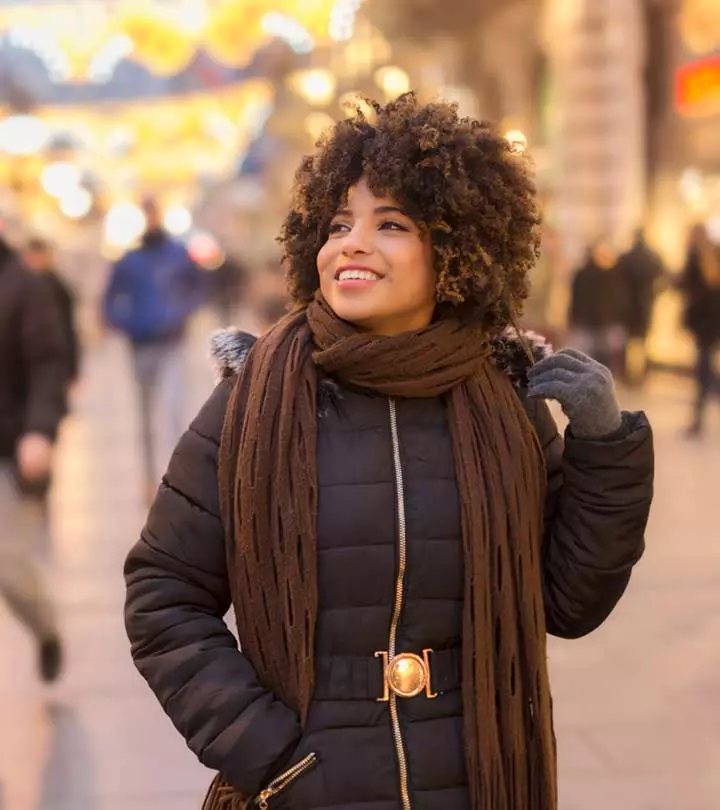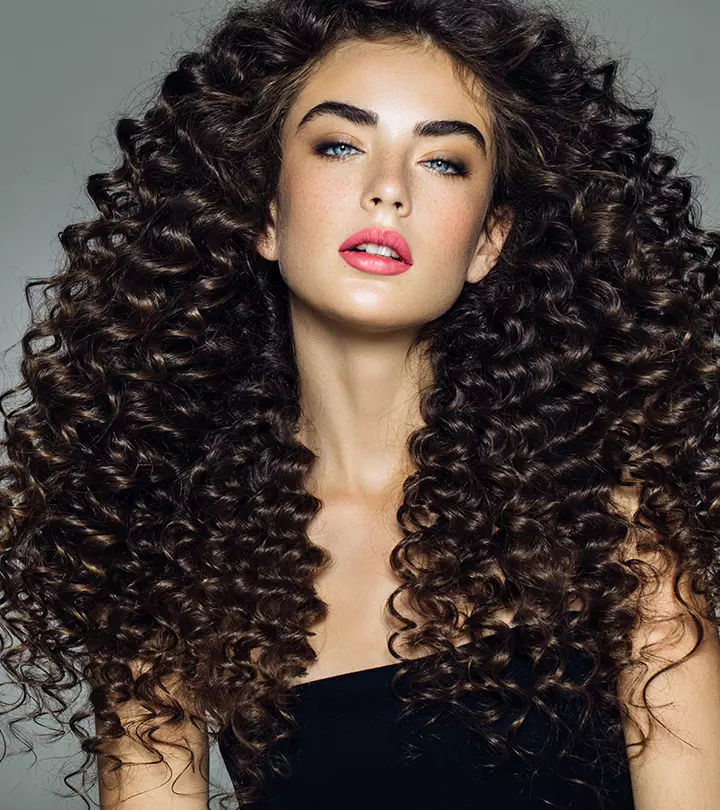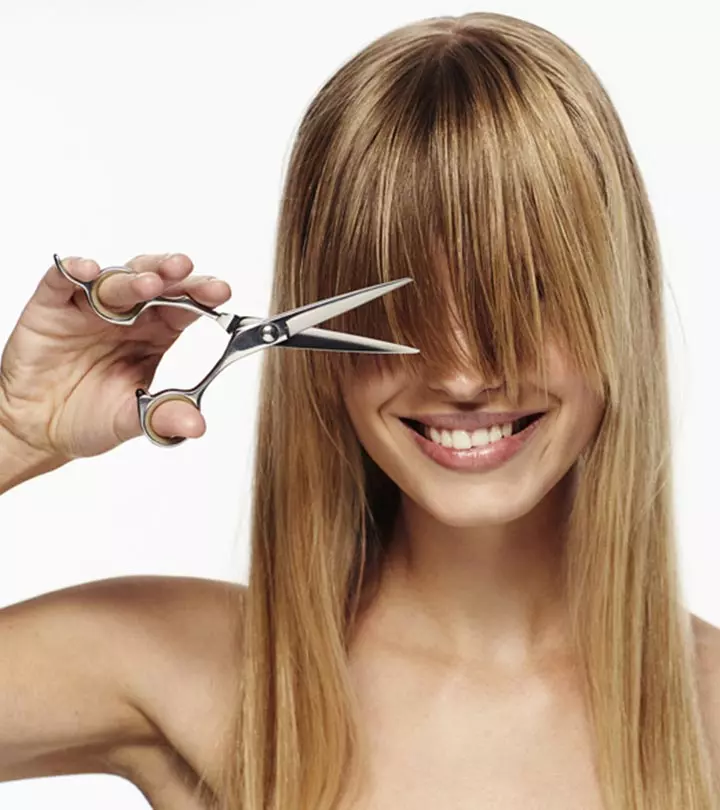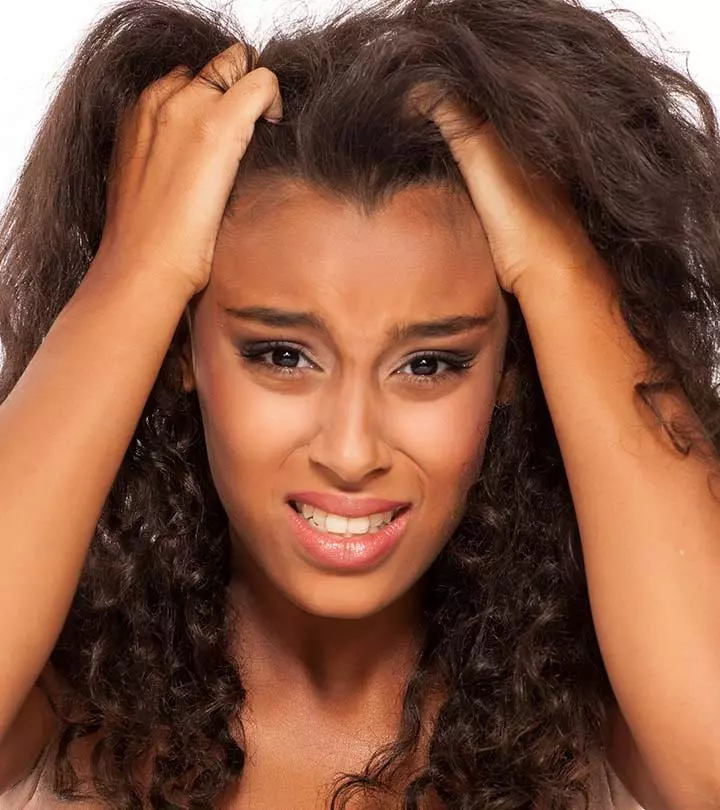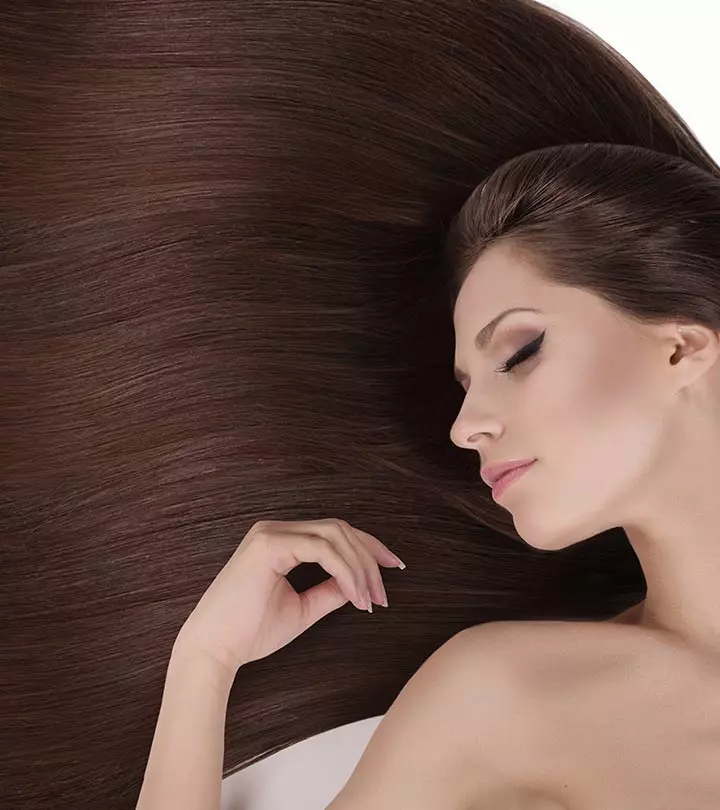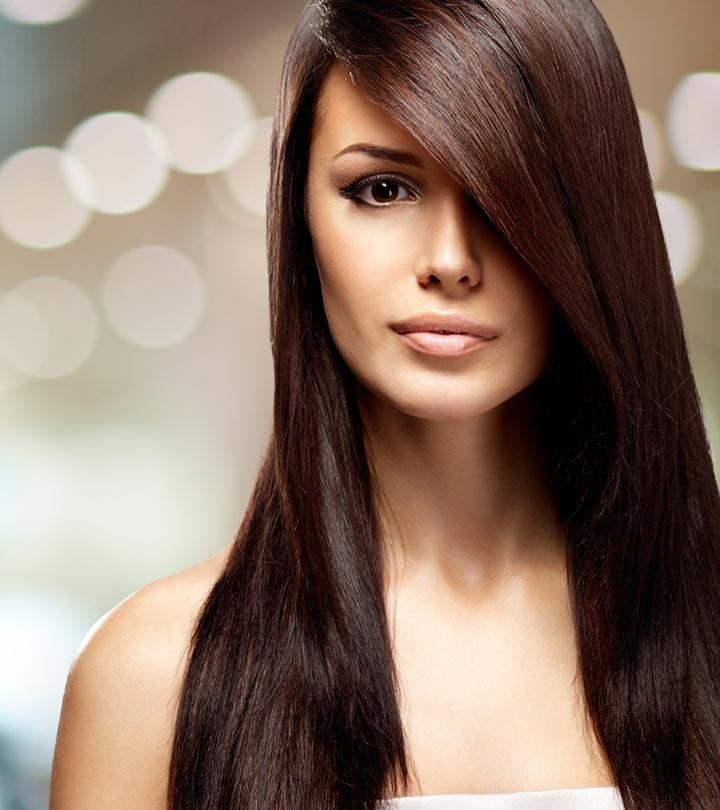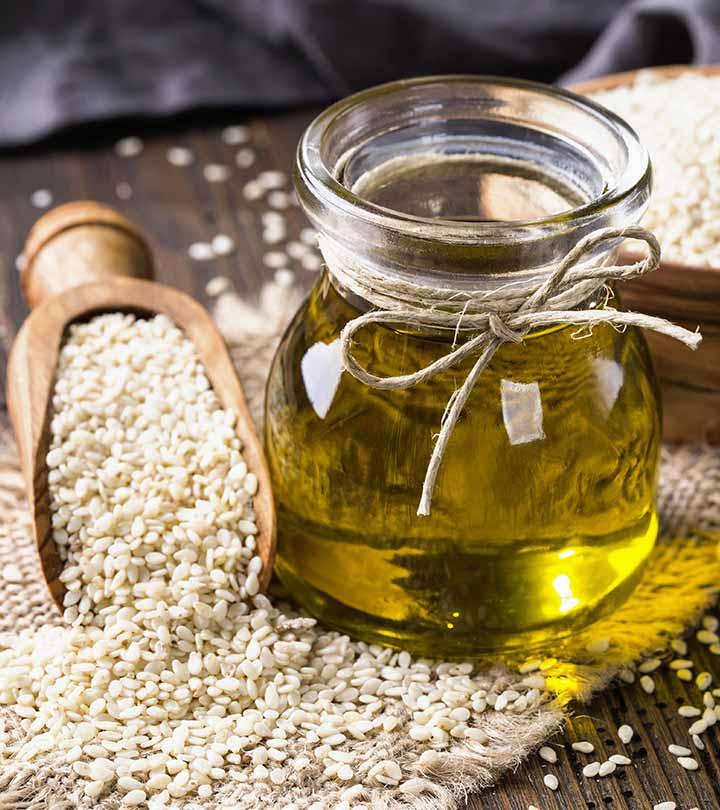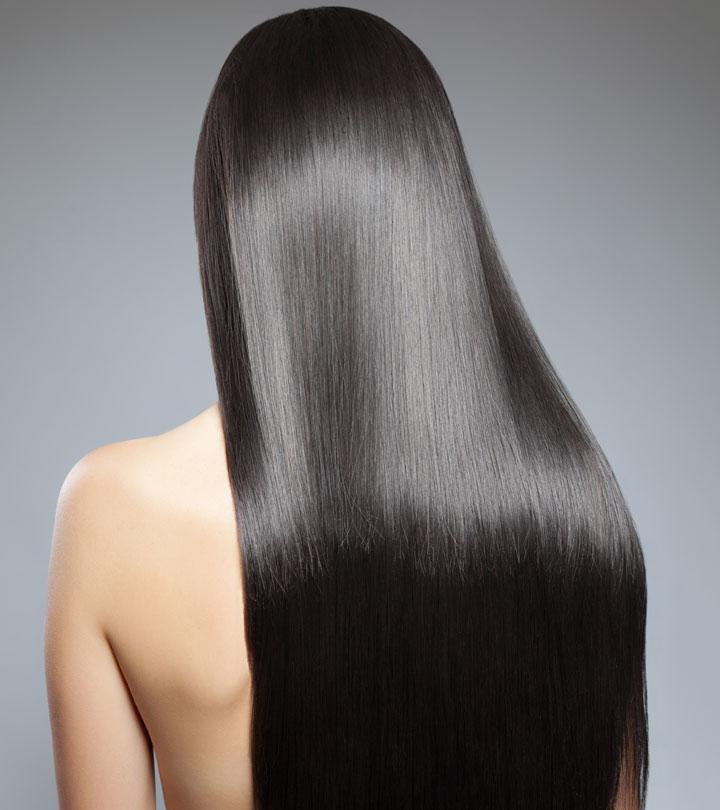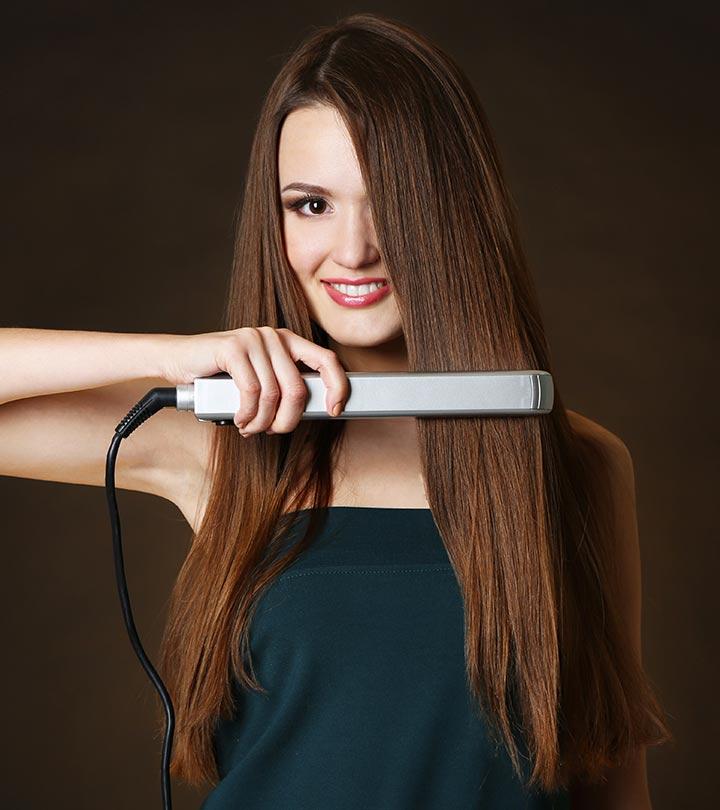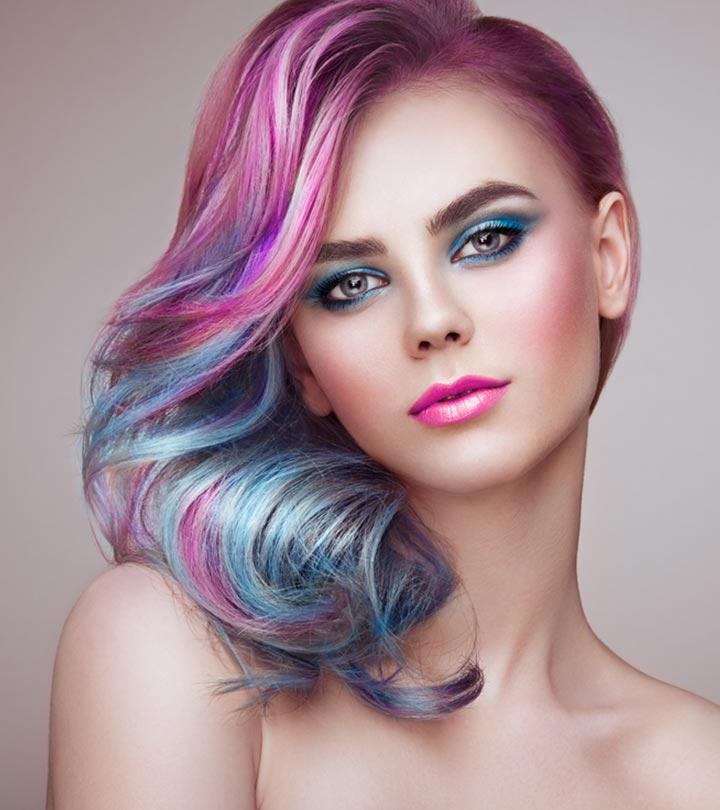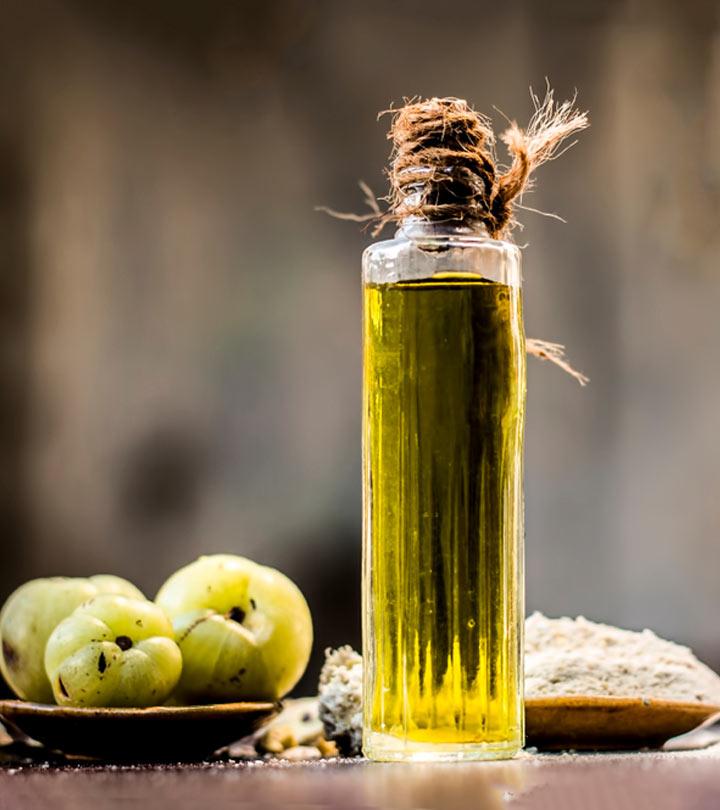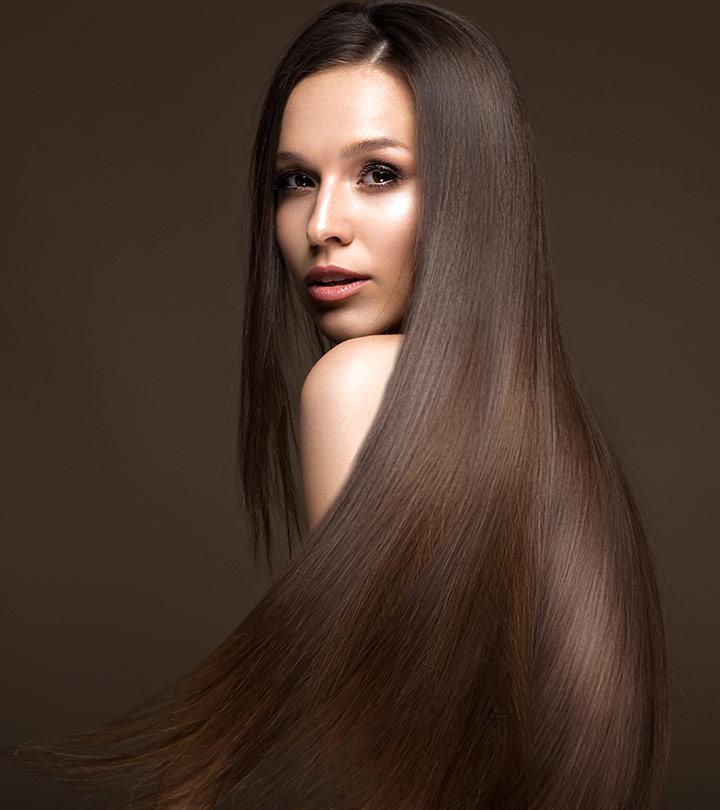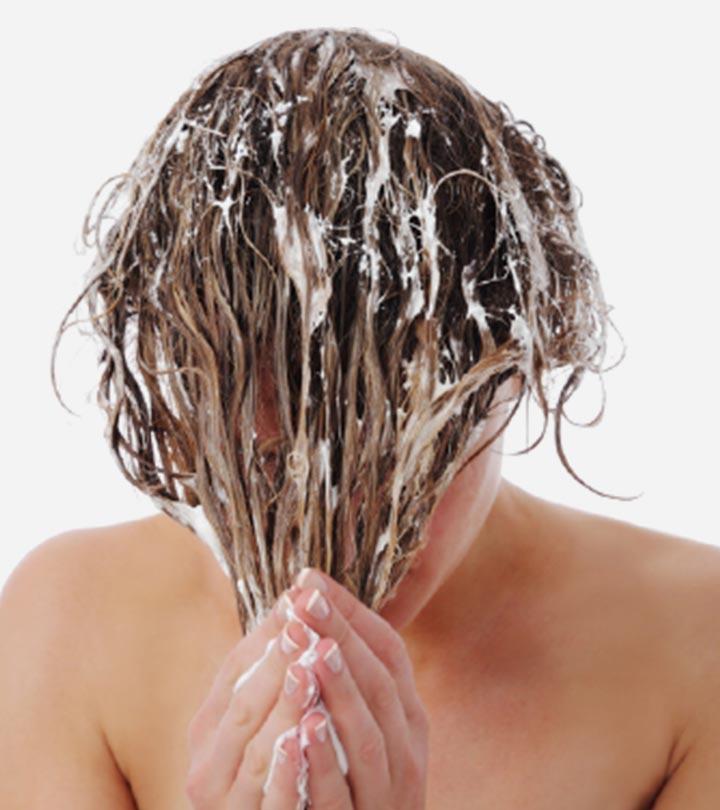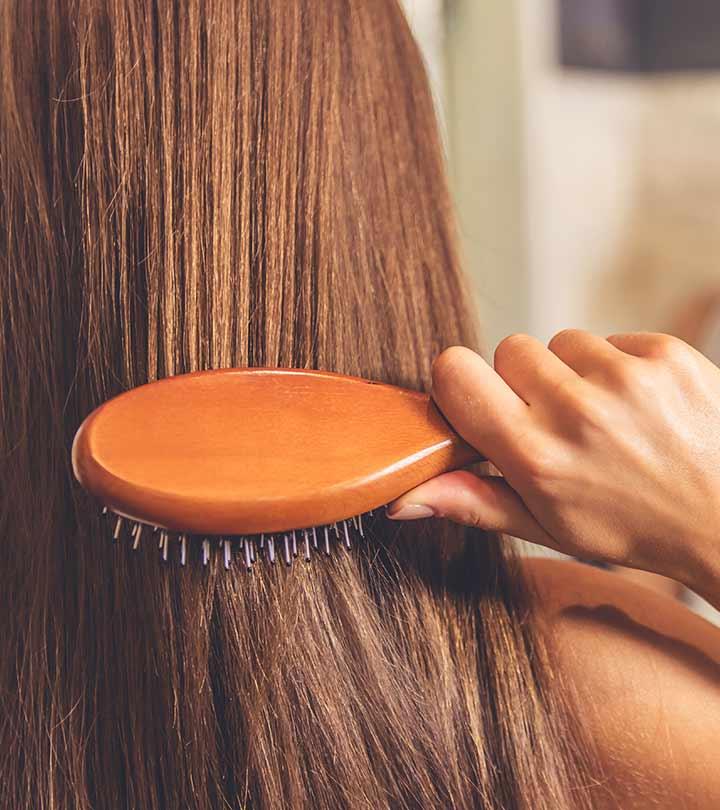10 Simple Tips For Hair Care During Pregnancy
All the essential tips to take care of your locks during your journey to motherhood.
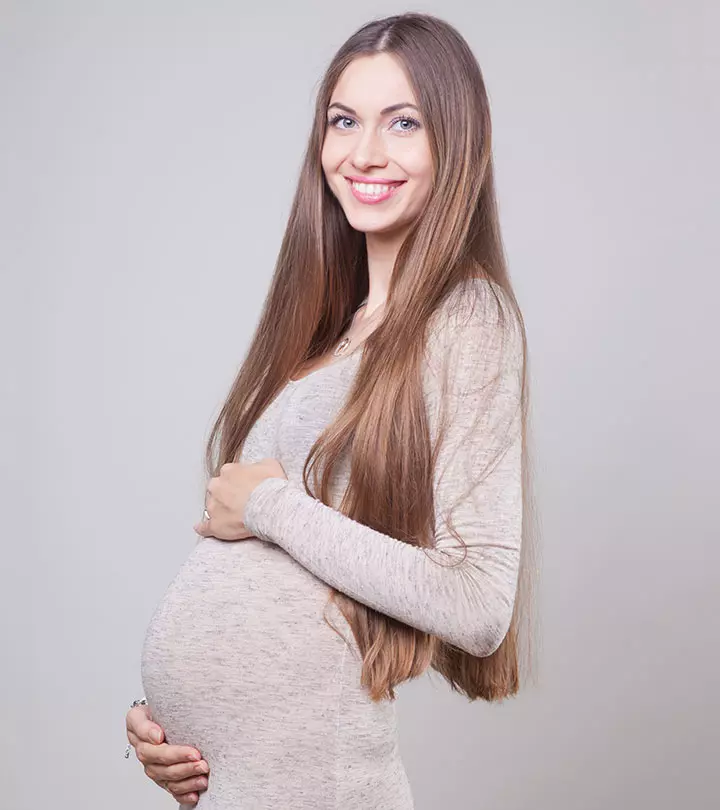
Image: Shutterstock
Surprisingly, there are many tips for hair care during pregnancy that you can follow. Pregnancy is one of the most incredible experiences a woman can have. Your body undergoes significant changes as you gear up to care for the tiny one forming inside you. Most of these changes during this period are due to the hormonal changes within. In addition, these extra hormones in your body may create a change in your regular hair cycles (1), (2).
Your hair may appear fuller and bouncier, or it may become excessively dry, rough, or crinkly. Some ladies may also notice a significant degree of hair loss as they overlook the importance of natural hair care during pregnancy.
You can usually restore the health of your hair within 6 months of childbirth with adequate care and a healthy diet that also includes foods for healthy hair during pregnancy. But it is important to look after your health during the nine months of pregnancy to ensure the health of your skin and hair and your general well-being. Keep reading to learn more about pregnancy hair care!
In This Article
How To Take Care Of Your Hair During Pregnancy
1. Go For A Hair Massage
A great way to take care of your hair during pregnancy and to relax at the same time is by indulging in a good hair massage. Massaging your scalp with oil increases hair thickness and improves blood circulation, which may induce hair growth (3).
Oil your hair at least three to four times a week. Using natural hair oils is a great way to add some nourishment to your hair (4). Opt for oils that have healthy ingredients, like olive, coconut, and almond oils. Heat up the oil slightly, making sure it is not too hot, but just warm. Massage this through the scalp in small circular motions, applying light pressure with your fingertips. Massaging the scalp may improve blood circulation and aid pregnancy hair loss prevention. You may also use essential oils for pregnancy hair care. Oils like geranium, lavender, Roman chamomile, etc. are said to be safe. However, be careful and consult a doctor before incorporating them into your hair routine.
This will help strengthen the roots and prevent hair fall. You can wrap a warm towel around the head to add some extra benefits.
2. Shampoo And Condition
Make sure you use shampoo at least once to twice a week. Use a mild shampoo. Apply a conditioner every time you wash your hair. Pay special attention to the tips of the hair to avoid dry or split ends. When it comes to pregnancy hair care for curly hair, use leave-in or natural conditioners.
As you progress in your pregnancy, washing your hair becomes more and more difficult. Ask your partner to help you with this.
3. Avoid Coloring Your Hair
 Quick Tip
Quick TipIt is best to avoid colouring your hair while you are pregnant. Studies show that the use of hair dyes can increase the risk of low birth weight, neuroblastomai A type of cancer that usually affects the adrenal glands and develops from immature nerve cells in the body. , and leukaemiai A type of cancer that affects the blood-forming tissues in the body. in the offspring (5), (6), (7). However, another study states that using safe hair care products during pregnancy three to four times is not a cause for concern and does not increase the risk of adverse effects on the baby (8).
Follow proper pregnancy hair coloring safety precautions to reduce hair damage. But as certain hair colors and dyes can trigger allergies or infections, it is better to avoid them to ensure safe hair care during pregnancy. For pregnancy-safe hair dye options, you can try organic and plant-based colors like henna and semi-permanent dyes. To take better care of your color-treated hair, do not forget to try DIY hair masks for pregnant women as they contain safe ingredients.
4. Use Natural Hair Masks
Opt for natural hair masks to nurture your locks during pregnancy. Use ingredients like yogurt, honey, and coconut oil for deep conditioning. These masks are chemical-free and safe, help restore damaged and dry hair, and prevent breakage. However, more scientific evidence is required about their usage and safety. Always do a patch test to avoid the risk of allergies and consult a doctor before trying new products.
5. Avoid Combing Wet Hair
Avoid combing your hair when it is wet. Let your hair dry naturally or use a hair dryer on medium heat. Comb it using a wide-toothed comb when dry. This will help in preventing hair fall during pregnancy. A tip for pregnancy hair care for frizzy hair – use a round bristled metal comb as it reduces static while combing hair. When it comes to pregnancy hair care for straight hair, avoid combing wet hair to prevent breakage, no matter how tempting it is.
6. Go For Regular Hair Trims
Your hair goes through different changes during pregnancy, causing a difference in hair texture and thickness. It is a good idea to go for a regular hair trim that will help avoid split ends or rough ends. Make time to include regular trimming as one of your pregnancy hair care routines. A new style is also a great mood enhancer!
After your trim, try protective pregnancy hairstyles like loose buns and braids to keep your tresses minimum maintenance.
 Trivia
Trivia7. Understand Your Hair Type
Hormonal changes can really mess with your hair type. It is best to understand your hair type as it changes during this phase.
Use the right pregnancy hair care products that are specifically created for this particular hair type. This will help add needed nourishment to your hair, making it less prone to damage and fall.
Get a nice haircut that will help style your changing hair type, or just give you a mood lift!
8. Follow A Balanced Diet
Everything that you eat now will help nurture your baby and give your body the strength it needs to go through the changes (9). A balanced diet is important for nourishing hair during pregnancy.
Include milk, fruits, vegetables, meats, fish, lentils, grains, and dry fruits and other such ingredients in your daily diet. Check with your doctor to find out the best pregnancy hair care diet for you and do not forget to get the list of food that you should stay away from during pregnancy.
9. Relax
Stress is one of the key reasons for hair fall during pregnancy. Changing hormones and mood swings can have a negative outcome on your hair.
Do activities that help you relax. Take a nice long bath, light up some aromatic candles, listen to some soothing music, meditate, practice yoga, sleep in, go for a relaxing head massage at the salon, or indulge in some retail therapy.
10. Avoid Tight Hairstyles
It is advisable to avoid tight hairstyles during pregnancy. Hormonal changes during this period can make the scalp more sensitive and prone to discomfort. Tight hairstyles like braids, ponytails, or buns can lead to headaches, hair breakage, and even exacerbate hair loss. Opt for looser styles like messy buns to ensure comfort and hair health throughout pregnancy.
Alia, a blogger, shares her experience of caring for her hair during her pregnancy and figuring out what style works best for her post pregnancy. She writes, “I got in the habit of applying a hair mask at least once a week and washing my hair backward. All of that led to me having the best hair I had ever had (i)!” She continues, “As soon as my son was born, I adopted a new hairstyle. It was a top knot secured with a butterfly clip. I admit, it’s not the most elegant look, but it keeps it out of my face and away from my son’s grabbing hands.”
Infographic: 5 Easy Ways To Maintain Your Hair During Pregnancy
Taking care of your hair regularly can seem like a task during pregnancy. Your hair can become dry and rough as it undergoes significant changes due to hormonal changes during this period. To restore the health of your hair, you must ensure that you are on a healthy diet and follow a simple care routine. Check out the infographic below to learn the 5 easy steps to care for your hair during this journey.

Illustration: StyleCraze Design Team
Following these simple care tips can help you cope with your hair issues during pregnancy. You don’t have to follow an extensive hair care regimen when you are pregnant. Remember to massage your hair and scalp, shampoo, condition, and trim your hair regularly, and eat a balanced diet. Applying pregnancy hair masks, rich in hair-boosting nutrients, protects and rejuvenates your hair. Most importantly, stay away from hair coloring to prevent damage. Understanding your hair type is an important factor in nourishing your hair and keeping it healthy. Don’t worry about hair care during the postpartum period as these tips are necessary for your hair care after pregnancy. So, continue with safe experimentation to find out the best hair care routine during pregnancy. Lastly, don’t stress yourself out, and enjoy your pregnancy!
Frequently Asked Questions
Which hair oil is good in pregnancy?
Natural oils like almond, argan, amla, and coconut are considered beneficial and safe during pregnancy. Massages with light oils like coconut and olive oils are good for pregnancy hair care for oily scalps.
Can I flat iron my hair while pregnant?
Yes. It is safe to use a flat iron to straighten your hair while pregnant. However, avoid undergoing chemical hair straightening procedures too frequently in order to maintain improved pregnancy hair care for dry scalp.
Can I use castor oil on my hair during pregnancy?
No. It is not recommended to use castor oil during pregnancy as it has a strong smell and may make you nauseous.
Can I use dry shampoo when pregnant?
Yes. Dry shampoos are an ideal alternative during pregnancy due to their ease of use.
Key Takeaways
- Pregnancy may affect your hair and scalp condition.
- Adequate care and a healthy diet with ample water intake may help restore the health of your hair within six months of childbirth.
- Massaging your scalp with natural hair oils increases hair thickness and improves blood circulation, inducing hair growth.
- It is best to avoid heat styling and chemical treatments during pregnancy as they may trigger allergies or infections.
- Remember to shampoo and condition your hair with gentle hair care products, and trim your hair regularly during pregnancy.
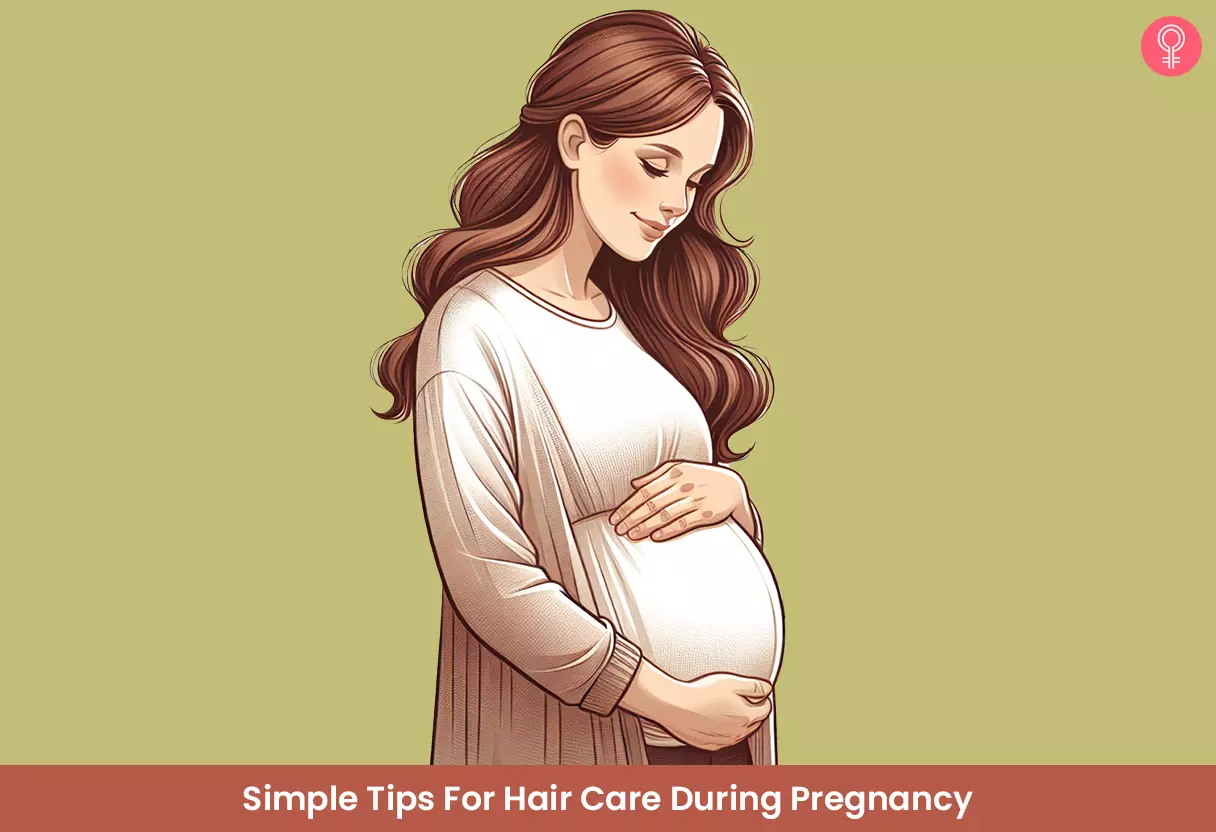
Image: Dall·E/StyleCraze Design Team
References
Articles on StyleCraze are backed by verified information from peer-reviewed and academic research papers, reputed organizations, research institutions, and medical associations to ensure accuracy and relevance. Read our editorial policy to learn more.
- Gizlenti, S, and T R Ekmekci. “The changes in the hair cycle during gestation and the post-partum period.” Journal of the European Academy of Dermatology and Venereology : JEADV vol. 28,7 (2014): 878-81.
https://pubmed.ncbi.nlm.nih.gov/23682615/ - Nissimov, J, and U Elchalal. “Scalp hair diameter increases during pregnancy.” Clinical and experimental dermatology vol. 28,5 (2003): 525-30.
https://pubmed.ncbi.nlm.nih.gov/12950345/ - Koyama, Taro et al. “Standardized Scalp Massage Results in Increased Hair Thickness by Inducing Stretching Forces to Dermal Papilla Cells in the Subcutaneous Tissue.” Eplasty vol. 16 e8. 25 Jan. 2016
https://www.ncbi.nlm.nih.gov/pmc/articles/PMC4740347/ - Keis, K et al. “Investigation of penetration abilities of various oils into human hair fibers.” Journal of cosmetic science vol. 56,5 (2005): 283-95.
https://pubmed.ncbi.nlm.nih.gov/16258695/ - Jiang, Chao et al. “The effect of pre-pregnancy hair dye exposure on infant birth weight: a nested case-control study.” BMC pregnancy and childbirth vol. 18,1 144.
https://pubmed.ncbi.nlm.nih.gov/29743046/ - McCall, Erin E et al. “Maternal hair dye use and risk of neuroblastoma in offspring.” Cancer causes & control : CCC vol. 16,6 (2005): 743-8.
https://pubmed.ncbi.nlm.nih.gov/16049813/ - Couto, Arnaldo C et al. “Pregnancy, maternal exposure to hair dyes and hair straightening cosmetics, and early age leukemia.” Chemico-biological interactions vol. 205,1 (2013): 46-52.
https://pubmed.ncbi.nlm.nih.gov/23747844/ - Chua-Gocheco, Angela et al. “Safety of hair products during pregnancy: personal use and occupational exposure.” Canadian family physician Medecin de famille canadien vol. 54,10 (2008): 1386-8.
https://www.ncbi.nlm.nih.gov/pmc/articles/PMC2567273/ - Danielewicz, H et al. “Diet in pregnancy-more than food.” European journal of pediatrics vol. 176,12 (2017): 1573-1579.
https://www.ncbi.nlm.nih.gov/pmc/articles/PMC5682869/
Read full bio of Dr. Rohan Das
Read full bio of Eshna Das
Read full bio of Krati Darak






